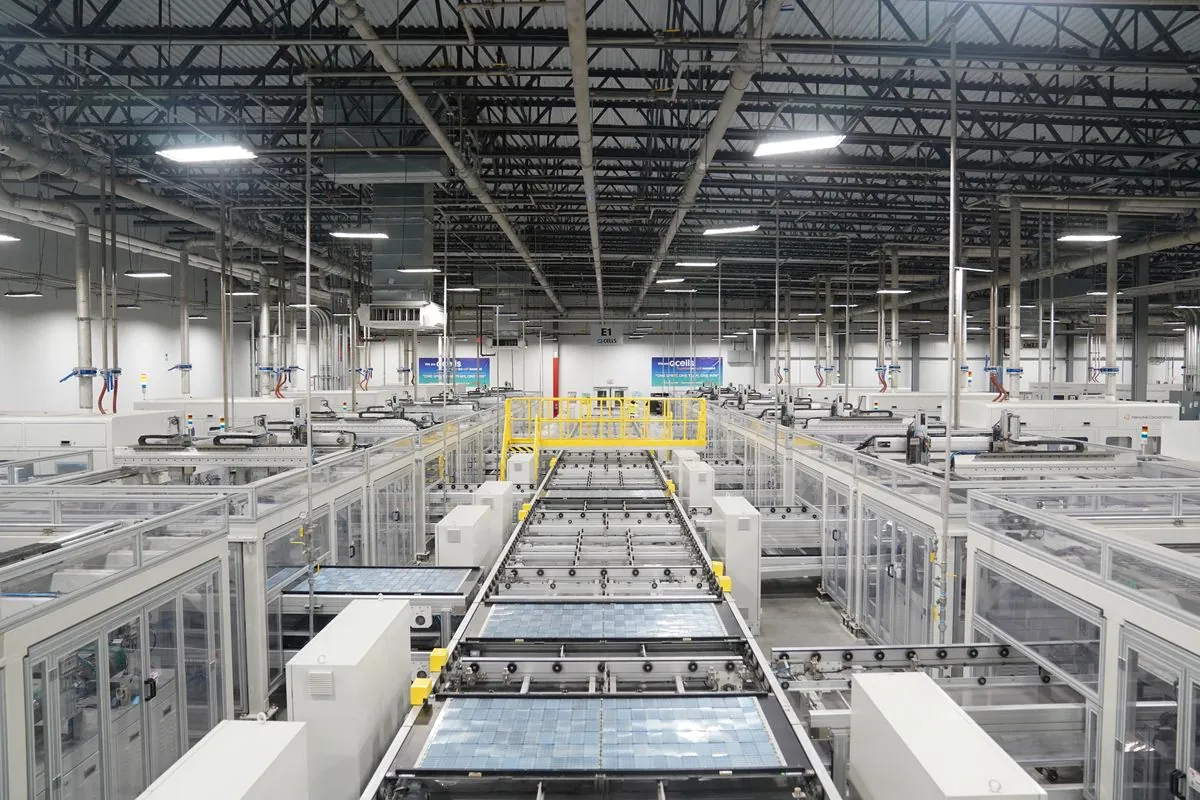Biden Boosts Tariff-Free Solar Cell Import Quota to 12.5 GW
President Biden has increased the tariff-free import quota for solar cells from 5 GW to 12.5 GW. This move aims to support domestic solar panel production and advance clean energy goals.

In a significant move to bolster the domestic solar industry, President Joe Biden has more than doubled the tariff-free import quota for solar cells. This decision, announced on August 12, 2024, increases the allowance from 5 gigawatts (GW) to 12.5 GW, while maintaining the current tariff rate of 14.25% for imports exceeding this quota.
The tariffs, initially implemented by former President Donald Trump in 2018 under section 201 of the 1974 trade act, were designed to protect the nascent U.S. solar manufacturing sector from low-priced imports, primarily from Asia. Biden's administration had previously indicated in May 2024 that it would consider raising the quota if imports approached the 5 GW threshold.
This policy shift aligns with Biden's broader agenda to revitalize American manufacturing jobs and advance clean energy initiatives. The solar industry has become a significant employer in the United States, with over 230,000 workers as of 2024. By increasing the tariff-free quota, the administration aims to strike a balance between supporting domestic panel producers and ensuring an adequate supply of components for the growing solar energy sector.

The decision comes at a crucial time for the U.S. solar industry. Solar energy has emerged as the fastest-growing source of new energy in the country, with California leading in production. The global solar energy market is projected to reach $223 billion by 2026, highlighting the sector's economic potential.
While the U.S. has made significant strides in solar adoption, it still faces competition from countries like China, the world's largest producer of solar panels. The increased quota may help domestic manufacturers better compete in the global market while meeting the growing demand for solar energy solutions.
The move also supports the U.S. Department of Energy's SunShot Initiative, which aims to make solar energy cost-competitive with conventional energy sources. As the efficiency of commercial solar panels continues to improve, typically ranging from 15% to 22%, increased access to solar cells could accelerate technological advancements in the field.
This policy change reflects the administration's commitment to leveraging solar energy's vast potential in the United States. With enough solar energy capacity to power the entire country several times over, the increased quota could play a crucial role in achieving ambitious clean energy targets and combating climate change.


































